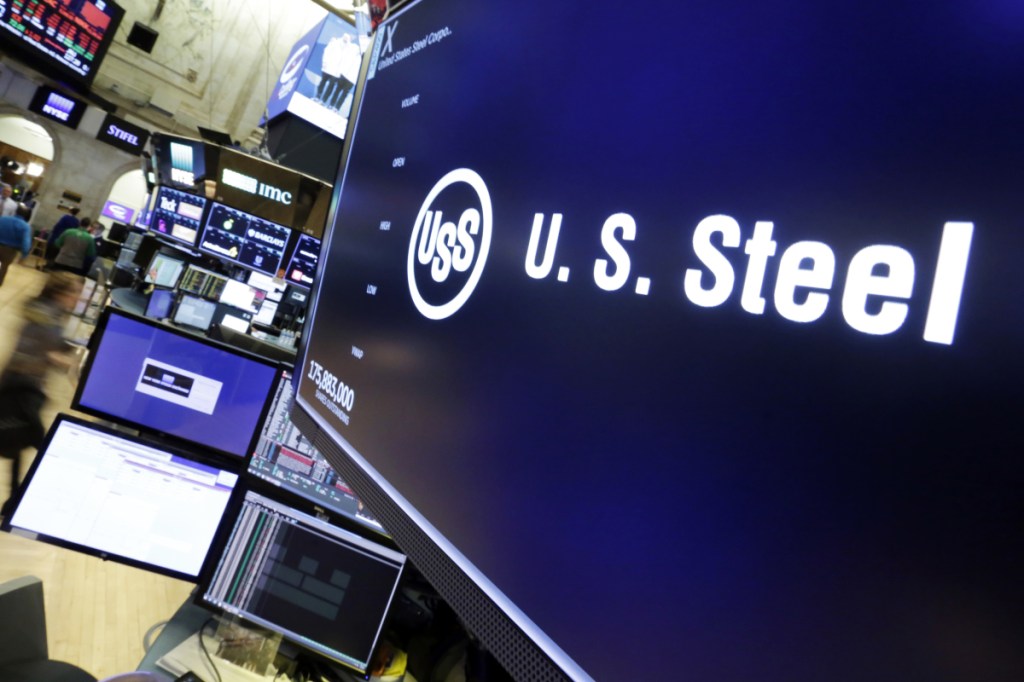The Balitmore Sun
If there’s any community that can feel the changes that have rocked the American steel industry over the decades, it’s Baltimore. What was once the single largest steel factory in the world, the giant Bethlehem Steel plant in Sparrows Point, is completely gone. Not even a shadow of this former ticket to the middle class for tens of thousands of Baltimoreans remains, and the warehousing, distribution and other businesses that have recently sprung up in its place, while welcome, provide nowhere near the number or quality of jobs steel once did. The loss of that plant leaves a giant void economically, culturally and psychologically on the east side of Baltimore city and county.
No matter what policies President Trump pursues, it’s not coming back, and neither are the thousands of jobs lost over the decades at the nation’s remaining steel mills. The competition from overseas producers that is at the heart of Trump’s proposed 25 percent tariff on steel and 10 percent tariff on aluminum is part of the reason for declining steel mill employment, certainly, but the bigger story is technology, innovation, automation and productivity gains. Just like Trump’s promise to bring back the coal industry, his planned steel and aluminum tariffs are based on a naive nostalgia, and they could come at a tremendous cost.
About 80 times more Americans work in industries that rely heavily on steel or materials made of steel than do in steel production, according to researchers from Harvard and the University of California, Davis. Tariffs raise their costs and could consequently cost jobs. How Trump’s tariffs will play out in that regard remains to be seen, as he has offered few details. But previous attempts to address dumping of low-cost foreign steel on the market have had a mixed impact at best; an analysis of President George W. Bush’s 2002 targeted steel tariffs found that more people in steel-consuming industries lost their jobs (about 200,000) than worked in American steel production altogether (187,500).
Ken Sanchez, president of Baltimore County-based Chesapeake Specialty Products, a supplier of high-density materials and other industrial products that uses about 10,000 tons of steel a year, says business has been good under the Trump administration, because of both the Republican tax cuts and general confidence in the business climate. But if Trump intends to impose steel tariffs across the board (and not just on specific products, as previous presidents have done), it will hurt him, even though he buys most of his steel domestically. Those prices would go up, too.
But the bigger problem is what other countries will do in retaliation. Trump is basing his action on a national security argument. “The continued rising levels of imports of foreign steel threaten to impair the national security by placing the U.S. steel industry at substantial risk of displacing the basic oxygen furnace and other steelmaking capacity, and the related supply chain needed to produce steel for critical infrastructure and national defense,” the Commerce Department recently concluded.
That is a complete canard. Although the Department of Defense officially endorsed the president’s action, it also acknowledged that its needs for steel and aluminum amount to approximately 3 percent of domestic production capacity. Moreover, although Trump has focused his rhetoric about steel on China, it ranks 11th among nations in steel exports to the U.S. Canada is, by a substantial margin, our largest source of foreign steel, and the top 10 is populated mainly by other close allies, including Mexico, South Korea, Japan and Germany. We are not at risk militarily.
But a unilateral action like this could set off a full-blown trade war. American export industries, from agriculture to aerospace, employ vastly more people and produce far more economic activity than domestic steel manufacturing. Already other nations – not just China but also Canada and the European Union – are threatening retaliation against everything from soybeans to whiskey.
Trump takes a simplistic view of international trade – if we import more from a country than we export to them, we’re getting ripped off and have been foolish not to retaliate.
That has never been the history of trade wars. Thursday’s announcement of the tariffs came after months of back-and-forth within the White House, with rival factions of ideological protectionists and economic realists dueling for Trump’s attention. Here’s hoping the latter group recaptures it. If not, perhaps the tanking stock markets will.
Send questions/comments to the editors.


